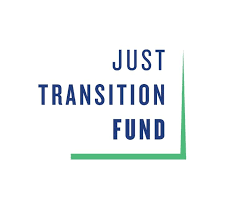BY ULLA NILSEN AND LEE SAMELSON
We are at a crossroads, again. Minneapolis is facing a historic opportunity for bold climate action in Minneapolis as our agreements with electric and gas utilities are about to expire.
Advocates see the franchise agreement negotiations—happening behind closed doors—as a crucial opportunity to secure funding for these ambitious goals. “If we make sure that the biggest polluters pay their fair share,” said Sara Lopez of Unidos MN, “the city could raise the revenue necessary to make truly accessible clean energy home programs available to all residents, no exceptions.”
Eleven years ago, the last time Minneapolis negotiated franchise agreements with utilities, both utilities promised to be “good partners” and established the first-in-the-nation Clean Energy Partnership with Xcel Energy and CenterPoint Energy. Now, local climate and equity advocates are encouraging city leaders to set up mechanisms to ensure utilities finally make good on their promises to the city.
 Advocates from the Just Transition Fund Coalition are calling for four key provisions in the new agreements:
Advocates from the Just Transition Fund Coalition are calling for four key provisions in the new agreements:
• Shorter contract terms (five years instead of ten) to allow more frequent reassessment
• Franchise fees that are set up to make the biggest polluters pay their fair share, based on electricity carbon intensity and fossil gas volume to incentivize clean energy
• Clear, enforceable annual performance metrics for utilities with consequences for failure to meet city goals
• Commitment to transparency about the cost of our local energy system
John Farrell, co-director of the Institute for Local Self-Reliance, echoed these points in a recent Star Tribune op-ed. “If city leaders are serious about meeting their own energy-affordability and climate goals, they must not let the utilities dictate the terms of the negotiation,” Farrell wrote, urging aggressive action in the franchise talks.
Farrell and others argue the Clean Energy Partnership, while groundbreaking, has fallen short of expectations. They point to utilities’ resistance to trying programs like inclusive financing for energy efficiency with Xcel slowing down local solar projects and CenterPoint continuing to promote gas appliances. The new negotiations offer a chance to strengthen accountability and secure concrete commitments aligned with Minneapolis’ climate targets.
“The task of addressing climate change is monumental, and the utilities responsible need to be part of the solution,” Farrell wrote. “Minneapolis leaders can act this year to make sure they do.”
The push for more aggressive climate action has been building momentum in Minneapolis. Last year, a coalition of environmental and social justice groups drafted the “People’s Climate and Equity Plan” to guide the city’s efforts. As reported by former city councilmember Cam Gordon in the Southside Pride in June of 2022, the plan calls for making every building in Minneapolis carbon-free by 2030, eliminating the racial wealth gap, and creating climate-resilient neighborhoods connected by clean transportation.
A newly released report outlines innovative funding mechanisms that could accelerate the city’s transition to clean energy if the Mayor Frey’s office is willing to stand firm. The report —”Equitable Funding Mechanisms for Climate Action in Minneapolis”—was developed by the Institute for Market Transformation (IMT) in partnership with the Just Transition Fund Coalition, and emphasizes that the transition to clean energy must be designed with equity at the forefront. Recommendations include focusing investments in historically marginalized communities. And in alignment with the Biden Harris administration’s Justice40 initiative, at least 40 percent of funds should be directed to areas like the city’s designated Green Zones.
The IMT report provides a detailed roadmap for implementing such a system, while addressing concerns about impacts on vulnerable residents. It suggests strategies like targeted exemptions, gradual phase-ins, and prioritizing investments in frontline communities to ensure an equitable transition. “The climate crisis demands urgent and equitable action at a scale far beyond what we have accomplished or envisioned so far,” the IMT report concludes.
The Franchise Agreement negotiations will put both city and utility commitments to equitable climate solutions to the test. With the franchise agreements set to expire at the end of 2024, the coming months will be crucial in determining Minneapolis’ climate trajectory for years to come. The city has a rare opportunity to pioneer an innovative, equity-focused approach to climate funding that could serve as a model for municipalities nationwide. As negotiations progress, all eyes will be on City Hall to see if leaders seize this historic moment.
What can you do? Tell your neighbors, talk to your City Council Member, call and write the mayor. Public pressure is our best lever. While the utilities own and profit from the vast majority of the energy assets in our city, it’s our air, our climate!
Ulla Nilsen and Lee Samelson are with the Just Transition Fund Coalition.






















